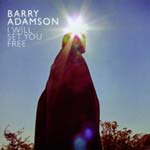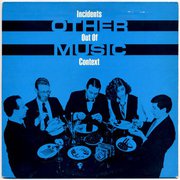| |
|
|
|
|
|
|
| |

$17.99 CD


|
|
CARETAKER
Patience (After Sebald)
(History Always Favours the Winners)
 "I Have Become Almost Invisible..." "I Have Become Almost Invisible..."
 "As If One Were Sinking into Sand" "As If One Were Sinking into Sand"
Last year's An Empty Bliss Beyond This World brought deserved and newfound attention to Leyland Kirby's Caretaker alter ego. Though his Caretaker project has been around since the mid-'90s, something about this record struck a chord -- albeit a refracted, warbly chord that simultaneously haunted and enchanted.
Like Philip Jeck's turntable experiments (see Vinyl Coda I-III), Stephen Mathieu's glitch-infused sampling (see FrequencyLib and Heroin) and by extension Gavin Bryars' Sinking of the Titanic and Christian Marclay's hip-hop-inspired appropriation, Kirby's music is not, strictly speaking, his own. Both An Empty Bliss and Patience (After Sebald) use others' music as source material, typically sampling passages in elliptical loops, often creating a woozy sensation through pitch and speed manipulation, intentional degradation and the addition of copious surface noise. That Kirby was a DJ first perhaps shouldn't come as a surprise. In a way, he's still DJing, just now in a manner where he's manipulating recorded material as an auteur.
Patience, which forms the soundtrack to Grant Gee's film about German writer W.G. Sebald whose own work often concerned memory and loss of memory, is very much a companion to An Empty Bliss Beyond This World. But where the latter album sampled swinging post-WWI popular music -- with a healthy layer of dubbed 78 crackle added for good measure -- to more upbeat, tipsy ends, Patience, which uses Franz Schubert's piano and voice song cycle Winterreise as its main source material, is far starker. Akin to Chopin's Nocturnes, the brief vignettes that comprise Patience suggest a dark night of the soul. If An Empty Bliss felt like you were hearing a 1920's party through the wall, or half asleep in a drunken slumber, Patience suggests what it might feel like to be lost in a vast tundra unable to reach civilization or warmth. Memories in this context, like water leaking through a crack, only serve to taunt. Crackle, such a factor on An Empty Bliss, only makes a late appearance, nearly altogether eschewed in favor of tape hiss, creating windy horizontal planes across the fragile piano vignettes.
Like Bryars' Titanic and Mathieu's Heroin, there is an element of Requia at work. The simple act of slowing and pitching the music down -- Bryars might even be seen as the progenitor to the chopped-&-screwed method so prevalent these days -- adds the gravitas of all things passed. A tribute to the past: memories, people, things lost in the fire, or those lost when the ship went down. The feeling of going down. Of possibilities not realized. Of love slipping away. Of... everything slipping out of one's grasp. If it all seems like so much doom and gloom, Kirby is able to buoy such heaviness with a sleight of hand that imbues the music and the atmosphere (after all, Kirby is often called an ambient music maker) with the heft of hope. That in such nocturnal moments of darkness, morning will come. That hope finally arrives in the album's closer. Kirby, who all but omits the vocal elements of Winterreise in favor of Schubert's delicate piano phrasings, seems he was saving the voice for effect. "Now the night is over and the dawn is about to break" is the album's climax, and probably the album's best piece. Highly recommended. [AGe]
|
|
| |
|
|
|
|
|
|
|



























